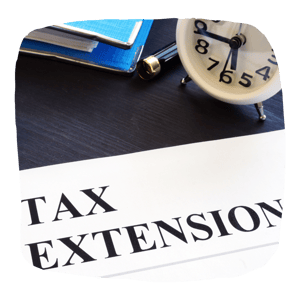Written By: MB Group
The hustle, the fear, and the anxiety — it must be tax season. And if you experience any or all of these  symptoms, you may be suffering from tax phobia or IRS phobia. While cynics may smirk at the notion, this issue has been documented as far back as 1984 when the Washington Post penned an article entitled "Fear of Filing". What's one of the outcomes of IRS phobia? Procrastination.
symptoms, you may be suffering from tax phobia or IRS phobia. While cynics may smirk at the notion, this issue has been documented as far back as 1984 when the Washington Post penned an article entitled "Fear of Filing". What's one of the outcomes of IRS phobia? Procrastination.
Whether you identify or not, procrastination with taxes is extremely common. In 2019, staggering 12 million people lobbied Uncle Sam for more time, which is down from 15 million the year before. There would probably be an even higher number of extensions if there wasn't a common misconception that filing a tax extension increases the chances of an audit.
At the MB Group, we are a team of experienced CPAs and tax planning professionals who regularly work with businesses and individuals to help them successfully file income tax extensions. In the process, one of the most common questions we receive is whether filing a tax extension increases the chances of an audit. In short, the answer is no: filing a tax extension doesn't increase the chances of an audit. Read on for more information on why filing a tax extension doesn't increase the chances of an audit.
The IRS offers tax extensions to provide tax filers with more time. Requesting a tax extension has become increasingly popular for both businesses and individuals. When you complete the paperwork properly, the IRS will automatically grant you an additional six months to file your yearly tax return. However, certain types of business entities will only be granted five months. Regardless of the extension, your tax balance will still be by the IRS deadline.
Requesting an extension from the IRS is easy and relatively hassle-free. In fact, they do not ask you questions as to why you need an extension because it doesn't matter to them. Several businesses and individuals regularly file for tax extensions to use the extra time to make sure their tax returns are as advantageous and accurate as possible.
 Does Filing a Tax Extension Increase Chances of an Audit?
Does Filing a Tax Extension Increase Chances of an Audit?If you think "tax audit" when "tax extension" is mentioned, you're not alone. However, it may be time for you to change the way you think. Although no one outside the IRS knows for certain how the audit system selection works, most CPAs and tax planning professionals say that extensions will actually reduce your chances of being audited.
Most accountants and financial advisors believe IRS officers have a certain target "audit quota" that starts around tax season. They theorize these quotas are filled prior to the extended deadline in October. So, when the surge of tax season has subsided and tax returns that have been approved for extensions are finally submitted, IRS agents may have less incentive to place those returns in the pile to be audited.
Taking an extension can give you additional time to reflect. You utilize this extra time to consider reporting alternatives for your business, gather financial records, and even access professional advice. Most importantly, you can file later, so you don't have to submit an amended tax return. An amended tax return can be submitted when you realize you made a mistake on your return after you've already filed. Used to correct the mistake, an amended return often includes alterations to the following items:
Contrary to popular belief, an amended return shouldn't be submitted to correct math errors; the IRS will automatically make the necessary corrections. Amended tax returns are typically the direct result of tax filings that were rushed due to poor preparation. While there may be times when you have to submit an amendment, it's critical to use this option sparingly and with caution. Why? Because amended returns are statistically more likely to be scrutinized. The message is simple: get it right and extend, so you don't have to amend.
Several businesses and individual taxpayers assume the IRS hates when you file an extension, but this is simply not true. The IRS and its agents are extremely busy during tax season. And anything that may lighten their load is more than likely fine with them. With a tax extension, you communicate that you will file your taxes after either the March 15th or April 15th deadline, which will be a period when they are not as busy. It is, however, important to pay your tax balance by the original due date. As long as you have paid your tax balance by the due date, you should be fine.
When it comes to tax planning and tax filing solutions, the team at MB Group can and will help. We offer an array of tailored solutions to help maximize your returns and minimize liability.
Contact MB Group today to learn how we can help.
Tags: Taxes
Whether you're a business owner or an individual, it's completely normal to request more time to file your federal income tax return. In fact, over 10 million taxpayers request tax extensions each...
Read MoreFinancial audits are an aspect of running any business, which means ensuring your financial records are accurate and compliant with regulatory standards is a must. Being audit-ready is not just about...
Read MoreEvery year, millions of Americans file their tax returns. And, every year, thousands of them miss out on valuable tax breaks and never even know about them. Here at the MB Group, we want every client...
Read More